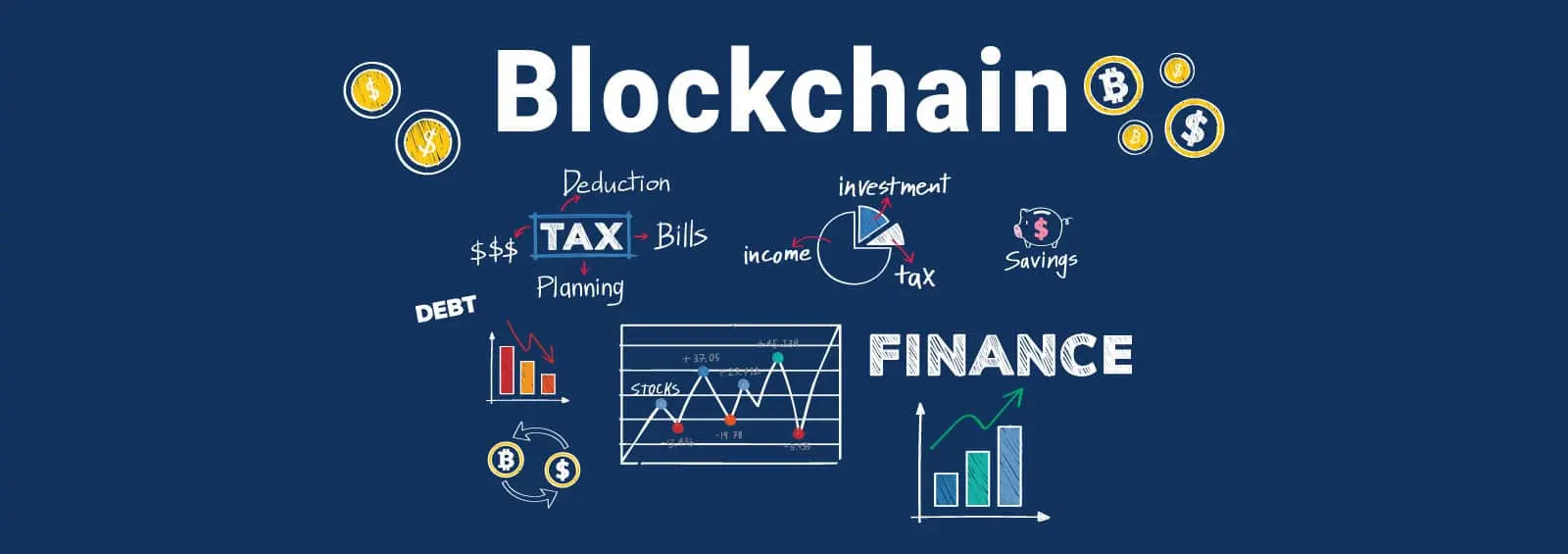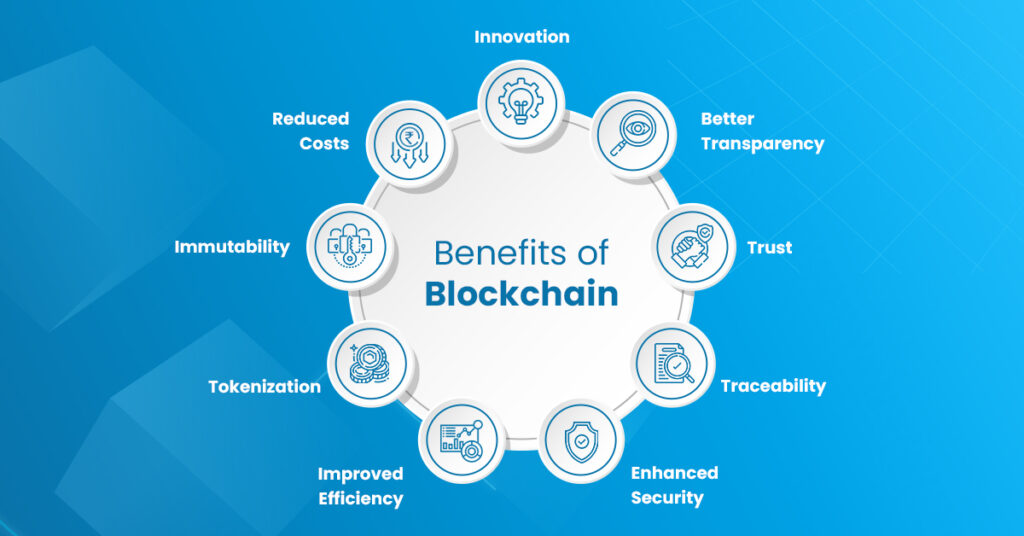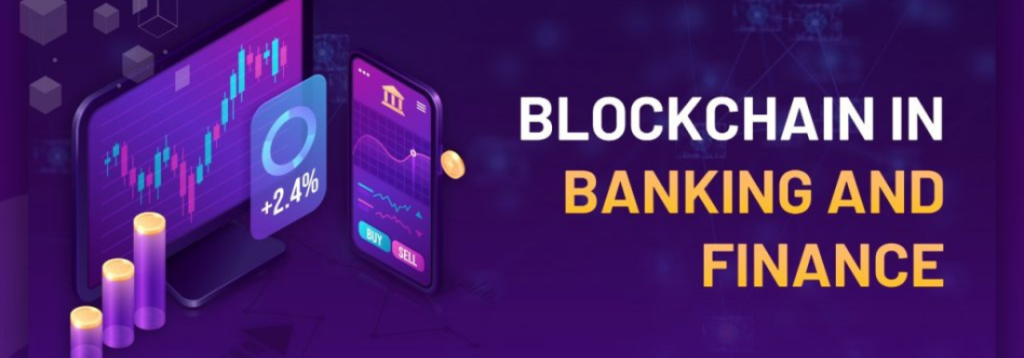Blockchain technology, initially introduced as the underlying infrastructure for Bitcoin, has evolved significantly since its inception. Today, it is heralded as one of the most disruptive innovations in the financial services sector. By providing a decentralized, transparent, and secure way of recording transactions, blockchain promises to transform the way financial services operate. This blog explores the profound impact blockchain is having on the financial industry, its key benefits, real-world applications, and the future potential of this revolutionary technology.

Understanding Blockchain Technology
At its core, a blockchain is a distributed ledger that records transactions across a network of computers in a way that ensures the data cannot be altered retroactively. Each block in the chain contains a number of transactions, and every time a new transaction occurs, it is added to a block. This block is then linked to the previous block, creating a chain of records. This decentralized structure ensures that no single entity has control over the entire blockchain, thereby enhancing security and transparency.
Key Benefits of Blockchain in Financial Services

- Enhanced Security: One of the most significant advantages of blockchain is its robust security features. Transactions are encrypted and linked to previous transactions, making it extremely difficult for hackers to alter information. Additionally, the decentralized nature of blockchain means there is no central point of failure, reducing the risk of cyberattacks.
- Transparency and Immutability: Blockchain provides a transparent and immutable record of transactions. Once a transaction is recorded, it cannot be altered or deleted, ensuring a permanent and tamper-proof audit trail. This transparency builds trust among stakeholders and reduces the need for intermediaries to verify transactions.
- Cost Reduction: By eliminating intermediaries and automating processes, blockchain can significantly reduce transaction costs. For instance, in cross-border payments, blockchain can streamline the process, eliminating the need for correspondent banks and reducing fees.
- Speed and Efficiency: Traditional financial transactions, especially cross-border payments, can take several days to settle. Blockchain can expedite this process, allowing for near-instantaneous transactions. Smart contracts, self-executing contracts with the terms directly written into code, further enhance efficiency by automating complex processes.
- Financial Inclusion: Blockchain has the potential to provide financial services to unbanked and underbanked populations. By leveraging mobile technology and decentralized finance (DeFi) platforms, blockchain can offer access to banking, lending, and investment services to people without traditional bank accounts.
Real-World Applications of Blockchain in Financial Services
- Cross-Border Payments: Traditional cross-border payments are often slow, expensive, and complex due to the involvement of multiple intermediaries. Blockchain can streamline this process by enabling direct transactions between parties. Ripple, for instance, uses blockchain to facilitate real-time cross-border payments with lower fees.
- Trade Finance: Trade finance involves multiple parties and extensive documentation, making it a complex and time-consuming process. Blockchain can simplify trade finance by providing a single, immutable ledger that all parties can access. This transparency reduces fraud, speeds up transactions, and lowers costs. Companies like IBM and Maersk have developed blockchain platforms like TradeLens to revolutionize trade finance.
- Securities Settlement: Traditional securities trading involves a time lag between trade execution and settlement, often taking several days. Blockchain can enable real-time settlement, reducing counterparty risk and improving market efficiency. The Australian Securities Exchange (ASX) is replacing its existing clearing and settlement system with a blockchain-based solution to achieve this.
- Lending and Borrowing: Blockchain and smart contracts can automate the lending process, making it faster and more secure. DeFi platforms like Compound and Aave allow users to lend and borrow cryptocurrencies without intermediaries. These platforms use smart contracts to automate interest payments and collateral management.
- Know Your Customer (KYC) and Anti-Money Laundering (AML): Financial institutions spend significant resources on KYC and AML compliance. Blockchain can streamline these processes by providing a single, immutable record of customer information that can be shared across institutions. This reduces duplication, enhances data accuracy, and lowers compliance costs.
- Insurance: Blockchain can transform the insurance industry by enhancing transparency, reducing fraud, and automating claims processing. Smart contracts can automate the execution of insurance policies, ensuring that claims are processed quickly and accurately. For example, Etherisc uses blockchain to offer decentralized insurance solutions for various industries.
Challenges and Considerations
While blockchain offers numerous benefits, its adoption in financial services is not without challenges. Some of the key considerations include:
- Regulatory Uncertainty: The regulatory environment for blockchain is still evolving. Financial institutions must navigate a complex and often ambiguous regulatory landscape to ensure compliance with existing laws and regulations.
- Scalability: Blockchain networks, particularly public ones like Bitcoin and Ethereum, face scalability issues. As the number of transactions increases, the network can become congested, leading to slower processing times and higher fees. Solutions like layer 2 scaling and sharding are being developed to address these issues.
- Interoperability: For blockchain to achieve widespread adoption, different blockchain networks must be able to communicate and interact with each other. Interoperability between blockchain platforms and traditional financial systems is crucial for seamless integration.
- Security: While blockchain is inherently secure, it is not immune to threats. Smart contract vulnerabilities, 51% attacks, and phishing scams are some of the security challenges that need to be addressed.
- Energy Consumption: Proof-of-work (PoW) consensus mechanisms used by many blockchain networks are energy-intensive. This has raised concerns about the environmental impact of blockchain technology. Alternative consensus mechanisms like proof-of-stake (PoS) reduce energy consumption.
The Future of Blockchain in Financial Services
Despite these challenges, the future of blockchain in financial services looks promising. The technology is still in its nascent stages, and ongoing research and development are likely to address many of the current limitations. Some of the future trends to watch for include:
- Central Bank Digital Currencies (CBDCs): Many central banks are exploring the issuance of digital currencies using blockchain technology. CBDCs could enhance the efficiency of monetary systems, reduce transaction costs, and promote financial inclusion.
- Decentralized Finance (DeFi): DeFi platforms are gaining traction, offering a range of financial services without intermediaries. As DeFi matures, it could provide a viable alternative to traditional financial systems, democratizing access to financial services.
- Tokenization of Assets: Blockchain enables the tokenization of physical and digital assets, allowing them to be traded on blockchain platforms. This could unlock liquidity for illiquid assets like real estate, art, and collectibles, and create new investment opportunities.
- Improved Interoperability: Efforts to improve interoperability between blockchain networks and traditional financial systems are ongoing. Achieving seamless integration will be key to realizing the full potential of blockchain in financial services.
- Enhanced Security Protocols: As blockchain technology evolves, new security protocols and standards address existing vulnerabilities. This will enhance the overall security and resilience of blockchain networks.
Conclusion
Blockchain technology revolutionize the financial services industry by enhancing security, transparency, and efficiency. While there are challenges to overcome, the potential benefits of blockchain are immense. As the technology continues to evolve and mature, it is likely to play an increasingly pivotal role in shaping the future of financial services. Financial institutions well-positioned to thrive in the digital age.
For organizations looking to explore blockchain solutions, companies like Websenor offer comprehensive services to help navigate and implement blockchain technology effectively. Websenor’s expertise in blockchain development can provide financial institutions with the tools and strategies needed to leverage this transformative technology, ensuring a competitive edge in the evolving financial landscape.







